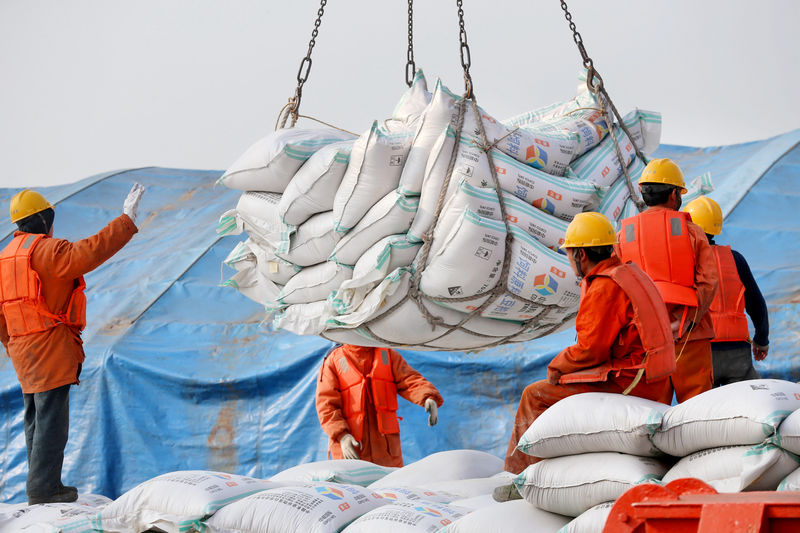By Hallie Gu and Dominique Patton
BEIJING (Reuters) - Beijing's nod to state-owned companies to start buying U.S. soybeans again to help placate its top trading partner may turn into a test of government will over market forces.
A bean buying spree right now would be painful for well-stocked Chinese end-users and traders, according to interviews with five executives at major trading houses and processors, particularly as U.S. beans are more expensive than supplies from rival Brazil.
U.S. export prices have pushed even higher this week as sellers have bet on a bonanza, but Chinese crushers already face razor thin margins to turn beans into animal feed or cooking oil.
What's more, COFCO and other big traders have built up big stocks of Brazilian beans in anticipation of a trade war, leaving them little room to take in much more, according to a source at Cofco and traders.
"Government's guidance or not, it doesn't really matter. Business is business, " said a manager at a medium-sized crusher in the north, which has sufficient supplies for its factory until end-June.
"A crusher won't buy beans if it's not profitable."
Brazilian beans are about $15 per tonne cheaper than American ones.
"If China really steps up buying U.S. soybeans, it won't be good news for the domestic market," said Zhang Yun, analyst with industry portal cofeed.com, pointing to high imports, mountains of meal and falling crush margins.
China's soymeal inventory stands at 1.15 million tonnes, near its highest in nine months, while soybean stockpiles have jumped by a quarter since mid-April to 7.01 million tonnes, their highest since September.
Soybean imports edged up 0.2 percent in the first quarter to 19.6 million tonnes, with arrivals from Brazil more than doubling while U.S. shipments fell.
QUIET RETURN
The renewed interest in U.S. grains comes after Beijing pledged at the weekend to increase imports to avert a trade war that could damage the global economy.
China gobbles up about 60 percent of globally traded soybeans, which are America's top agricultural export to the country, worth $13 billion (9.7 billion pounds) last year.
China's Ministry of Commerce told Reuters it had not issued instructions to state-owned companies to step up purchases of U.S. soybeans.
But state-owned stockpiler Sinograin made enquiries for U.S. beans this week for the first time since early April, a move that market participants interpreted as a sign that government curbs on buying American goods had been lifted.
Restrictions preventing state grain trader Cofco from buying U.S. soybeans have also been removed, sources familiar with the matter said.
Sinograin and Cofco did not respond to requests for comment.
America sold 264,000 tonnes of new-crop soybeans to an undisclosed destination, data on Thursday showed, which traders said was likely China. Reuters could not confirm this.
STRATEGIC STOCKPILE
It's not clear how much China may buy, but the United States is expected to have about 11 million tonnes of beans left over this year after their expected sales, worth about $4.5 billion -- an indication of what may be available. The market has speculated the government may be preparing to replenish its state reserves.
Crushers worry that any extra buying will boost prices and further erode margins as demand dwindles from the animal feed industry. Pig farmers, the top users of meal, are bleeding cash and struggling with sinking hog prices amid a burgeoning glut.
Bids for U.S. Gulf Coast exports rose this week on demand from exporters for old-and new-crop shipments, with activity picking up as trade tensions eased, traders said.
Higher prices are particularly painful for crushers in the south where a manager at a large crusher said firms are bleeding about 20-30 yuan for every tonne of beans they crush due to huge imports and weaker demand.
"Some crushers in the south have already started delaying cargoes to reduce pressure on stocks," he said.
